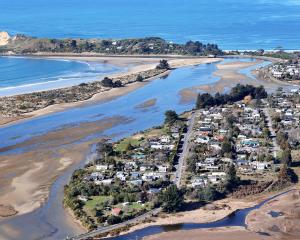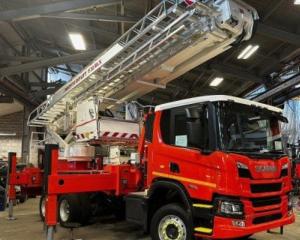
Otago Regional Council regional planning and transport general manager Anita Dawe told the council’s environmental science and policy committee this month that staff required "direction" on how ambitious the council wanted to be in its new air plan, expected to come into force later this year.
First up for discussion was the impact of home heating on the region’s air quality.
Council chairwoman Gretchen Robertson said it appeared most councillors believed wood burning should continue to be allowed to keep homes warm, but maintaining the status quo was not the answer either.
"It seems as though most people think there should be wood burners still — of some sort — rather than a full ban," Cr Robertson said.
"But ...we do have to try to meet the [national] regulations."
During the workshop, staff outlined potential steps and the expected outcomes of three broad options around home heating.
Under the council’s current framework and with its non-regulatory work, there would be an average 18% improvement in ambient air quality by 2040, but air quality would not meet the limits set out in New Zealand’s national environmental standards for air quality (NESAQ).
In order to meet the NESAQ, the council could advance a package of options that would result in a 42% improvement in air quality by 2040.
Lastly, meeting World Health Organisation guidelines for particulate matter in the air would improve air quality in Otago’s monitored towns by 49% by 2040.
However, while achieving this would produce the best outcomes for human health, it would require phasing out all burners in Alexandra.
Residents would require financial assistance through the transition, staff said.
"And we are very aware [a ban] has other issues, for example with cold homes ... with electricity outages and heating security.
"But we wanted to show you this option so you were aware what it would take to get to the World Health Organisation guidelines everywhere in Otago."
Councillors were told beyond the wood burner ban in Alexandra, Clyde and Cromwell residents would be required to phase out all burners except ultra-low-emission wood burners and there would need to be outdoor burning controls in place as well.
In Arrowtown, Milton and Mosgiel, a phase-out of non-ultra-low-emission wood burners would also be required.
And in every other urban area there would need to be a requirement such that any new wood burners installed would need to be ultra-low-emission wood burners.
Cr Alexa Forbes said she was not happy with the status quo and wanted to move beyond it.
Cr Alan Somerville said the health costs associated with the rules councillors were considering should be explored.
Although he wanted to be "very ambitious", he felt no parts of Otago should be prohibited from having wood burners, he said.
Cr Gary Kelliher said he believed anything beyond the status quo was "too extreme" and the council should look for more "low-hanging fruit".
"Anything above the status quo has some very substantial implications and I think it will create cold towns."
Cr Michael Laws said wood burners remained the most cost-effective way to keep homes warm in winter.
"I don’t want us ever to get to the point where we are banning wood burners," Cr Laws said.
Issues related to home heating, outdoor burning, odour related to farming, controls related to agrichemicals and fertiliser, and trade and industrial air pollution were all discussed.
Councillors are due to make a decision on the "level of ambition" for the plan next month.












